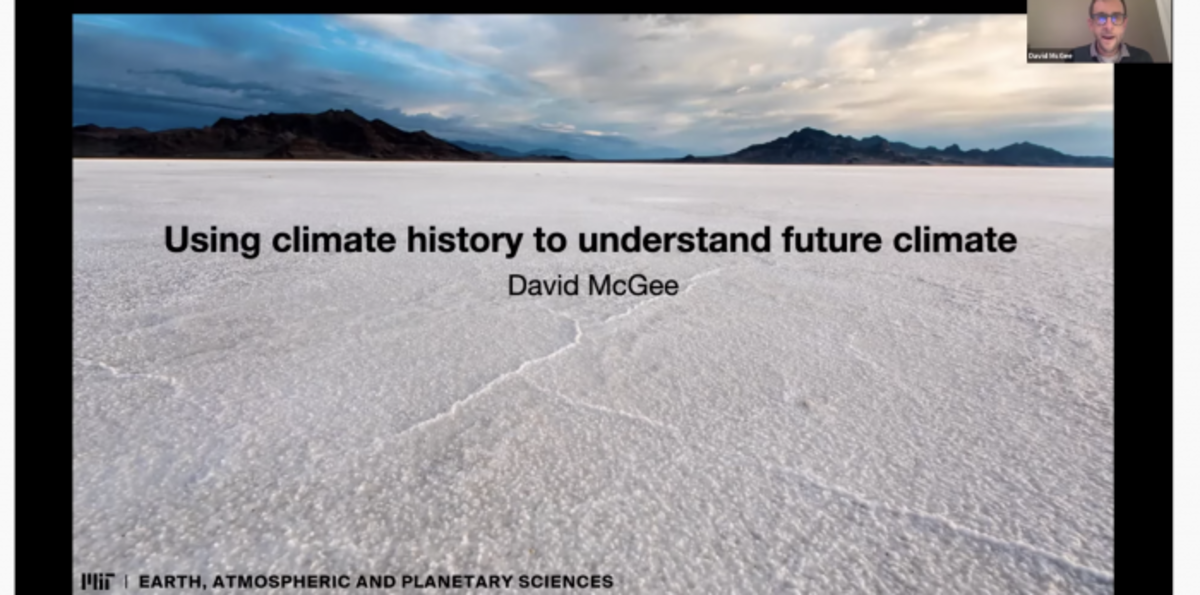PAOC Spotlights
Degrading Pernicious Plastics and Predicting Using Past Climates
Basic scientific research is required to make significant progress in sustainability and the climate crisis. More research is needed into how climate change will play out at the regional level: In what areas are impacts on water availability, floods, and heat waves going to be most severe; and how large will these impacts be? MIT scientists can use paleoclimate data to ground our understanding of the scale of past rainfall changes. Certain plastics are durable and heat-resistant but can’t be easily recycled or broken down. MIT chemists can now modify these thermoset plastics to retain their mechanical strength and degrade more easily. The approach could be applicable to a range of plastics and other polymers, such as rubber.
In this MIT Better World (Sustainability) breakout session, hosted by the MIT School of Science in March 2021, David McGee and Jeremiah Johnson, professors in the Department of Earth, Atmospheric and Planetary Sciences and the Department of Chemistry, respectively, present aspects of their research programs that impact the prediction of precipitation and the creation of useful, but less harmful, materials of the future.
The MIT Campaign for a Better World is all about rising to meet humanity’s urgent global challenges through the vision and talent of the people of MIT. Learn more: https://betterworld.mit.edu
